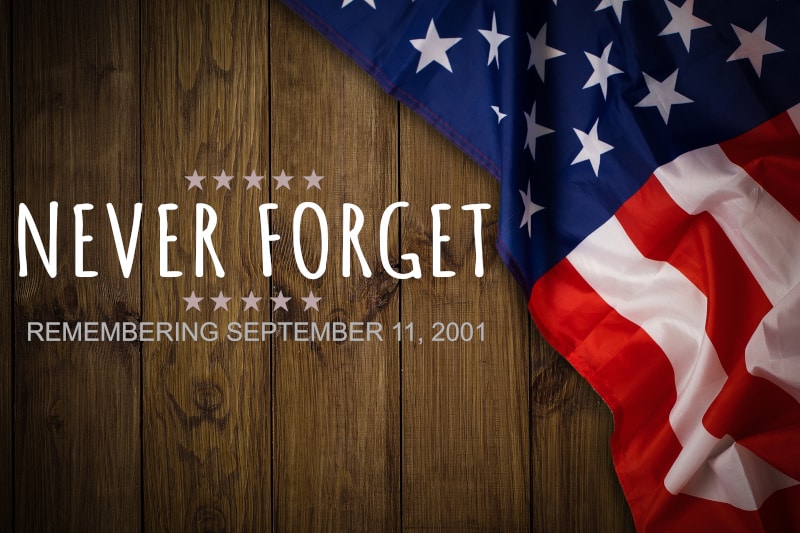
Dear Friends, One of the seminal moments in life we can never forget. Most people probably remember precisely where they were standing and what they were doing when they heard the news on that fateful morning when two hijacked planes crashed into the twin towers. A transforming moment – for America, for the world, and every one of us personally. 9/11 was when we saw the best and worst of humanity, the cruelty of the terrorists, and in such sharp contrast, the heroic efforts of the first responders who risked their lives to save others. We don't know who wrote the following message after 9/11. It remains one of the most beautiful and succinct summaries of the life lesson we are to take from an event that has the power to alter our lives - a message that this year finds a profound echo on the day of Shabbat Shuva, which serves as 9/11's anniversary. "On this day… 246 people went to sleep in preparation for their morning flights. 2,606 people went to sleep in preparation for work in the morning. 343 firefighters went to sleep in preparation for their morning shift. 60 police officers went to sleep in preparation for morning patrol. 8 paramedics went to sleep in preparation for the morning shift. None of them saw past 10:00 am Sept 11, 2001. In one single moment life may never be the same. As you live and enjoy the breaths you take today and tonight before you go to sleep in preparation for your life tomorrow, kiss the ones you love, snuggle a little tighter, and never take one second of your life for granted." The 20th anniversary of this historical event occurs this week on Shabbat Shuva, the Sabbath between Rosh Hashanah and Yom Kippur during the ten days of repentance. It is the day we are meant to prepare for Yom Kippur, the Day of Atonement, to define the spiritual meaning of our lives and our historic roles in the perfection of G-d's universe. Shulchan Aruch states (Siman 503) during the Aseret Yeme Teshuva (10 days of repentance), even one who is not usually scrupulous about eating bread baked by a gentile should be conscientious during this period. I always found this Halacha puzzling. Out of all the times of the year that we genuinely strive to be true to ourselves, it seems counter-intuitive to suggest that during these ten days, one should 'put on an act that will last until Motzai Yom Kippur and then revert to 'business as usual.' What benefit does not being true to oneself have on one's overall service of G-d? The Mishna in Pirke Avot (Ethics of the Fathers 4:15) says: ״והוי זנב לאריות, ואל תהי ראש לשועלים" "be a tail to lions rather than a head to foxes." Perhaps this Mishna is best explained as Viktor Frankl often quoted: "If we take a man as he is, we make him worse, but if we take man as he should be, we make him capable of becoming what he can be" (Johann Wolfgang von Goethe). During these holy days, a time of introspection, we have to be "idealists to end up as realists." Life-altering choices in our service of G-d are ultimately made by being idealists, striving for higher mitzvah observance in any area. Like an additional layer of Shabbat observance, deeper concentration in prayer or extra care for one another. This helps ensure that our new year's resolution will ultimately affect real change once Yom Kippur is over, maintaining the level we truly seek. Shabbat Shalom, Tizku Le'shanim Rabot Ne'Imot Ve'Tovot, Rabbi Shlomo Gabay